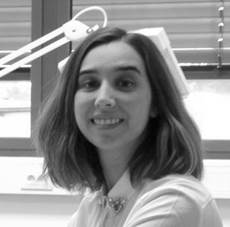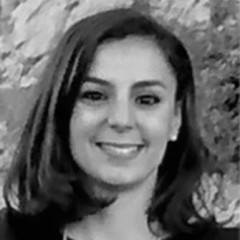Staff
Scientific production - Portal UCM
Dr. Raul Arrabal, with a Degree in Chemistry (UCM, 2002, Extraordinary Award), completed his PhD in Materials Science and Technology in 2006 (UCM, Extraordinary Award, FPU grant). He then enjoyed a competitive postdoctoral contract (2006-2008, MEC grant) at the University of Manchester. In December 2008 he reincorporated into Complutense University of Madrid with a Ramon y Cajal research fellowship followed by a promotion to Associate Professor, first as Profesor Contratado Doctor (2013) and later as Profesor Titular (since 2017). Since 2003, he has been involved in the field of characterization, corrosion and protection of light metals, with particular interest in the development of coatings on titanium, aluminium and magnesium by Anodizing and Plasma Electrolytic Oxidation. Dr. Raul Arrabal has participated in the preparation of more than 140 scientific manuscripts.
 Scientific production-Portal UCM
Scientific production-Portal UCM
Dr. Endzhe Matykina holds a Candidate of Science degree in Chemical Sciences and Electrochemical Engineering (2002, Kazan National Research Technological University (KNRTU), Russia) and a PhD in Materials Science and Corrosion (2006, The University of Manchester UoM, U.K.). Since 2006 she worked as a postdoctoral researcher at UoM, CENIM-CSIC (Spain) and is currently an Associate Professor at UCM, after enjoying a prestigious Ramon y Cajal Research Fellowship. She has been working in the area of Materials for Health since 2003, developing bioactive coatings for Ti and Mg alloys by conventional and advanced electrochemical techniques, including anodizing, electrochemical deposition and plasma electrolytic oxidation. During her career Dr Matykina has published more than 120 articles in peer-reviewed journals with h-index of 48.
 Scientific production- Portal UCM
Scientific production- Portal UCM
Dr. Marta Mohedano is a Ramón y Cajal researcher since February 2019. She received her Doctorate (Ph.D.) in Materials Science and Technology from UCM in 2011, and was awarded with the “Extraordinary doctorate award”. Then she enjoyed the prestigious Humboldt Fellowship in the Corrosion and Surface Technology Group, Magnesium Innovation Center, Helmholtz Zentrum Geesthacht (Germany 2013-2016). In June 2016 she reincorporated into Complutense University of Madrid with a Juan de la Cierva Incorporación fellowship followed by 3 years as a Principal Investigator (PI) of a National Project Retos Jovenes Investigadores. She has a solid background in various corrosion tests under different simulated environments and developing active protective Plasma Electrolytic Oxidation Coatings on light alloys. She has contributed to 60 publications in peer-reviewed journals with an h-index of 22.
Scientific production-Portal UCM
Dr. Jesús M. Vega holds a BSc in Chemistry (2005), MSc in Materials Engineering (2008) and a PhD in Chemistry (2011 at CENIM-CSIC (Spain)), all of them from Complutense University of Madrid in Spain (UCM). During this period, he has also been visitor researcher in different Universities (Oxford University (Oxford, UK), The Ohio State University (Columbus-Ohio, USA) and Central University of Ecuador (Quito, Ecuador)). After 2.5 years as a post-doctoral researcher in TU Delft (Delft, The Netherlands), he joined as senior researcher at CIDETEC in 2013 and in 2018 he was promoted as a Head of the Corrosion and Tribology Group. Since January 2023, he is a Ramón y Cajal Researcher at UCM. His research activities have been focused in the field of electrochemistry (conventional and localised electrochemical techniques), materials science (corrosion science, synthesis of corrosion inhibitors, corrosion monitoring using non destructive testing) and coatings (organic coatings, self-healing polymers, hybrid coatings, functional and decorative metallic coatings). He is inventor of two patents, has participated in more than 30 national and EU R&D projects and is co-author of more than 30 scientific papers in national and international peer reviewed journals.
Scientific production - Portal UCM
Dr. María Isabel Barrena received her PhD in Materials Science and Technology (with Extraordinary Award) from Complutense University of Madrid (UCM) in 2000. She incorporated into UCM as Associate Professor (Profesor Asociado 2000-2004, Profesor Contratado Doctor 2004-2008, Profesor Titular 2008-2018) and followed by promotion as Full Professor (since 2018). She has been worked in areas of microstructural characterization, mechanical properties, welding processes and corrosion behaviour of both light alloys (Al, Mg and Ti) and composite materials. She is the author of numerous papers, and she has received scientific awards for some of this work. Since 2014 she has combined her teaching and research work with university management (Academic Secretary of the Faculty of Chemical Sciences, UCM).
Dr. Beatriz Mingo graduated in Chemistry (2011), completed her Masters in Materials Science Technology (2012) and defended her PhD thesis (2016) at the Complutense University of Madrid (UCM, Spain) for which she received the Extraordinary Doctorate Award. During her PhD she studied different strategies to improve the corrosion resistance of light alloys. In 2013 the British-Spanish Society granted her a scholarship to complete her academic training in cutting edge 3D characterisation techniques at The University of Manchester. She also carried out two research stays at the Helmholtz Zentrum Geesthacht (2015 and 2016) in the Corrosion and Surface Technology Group, where she learnt the fundamentals of active protection, with the development of self-healing coatings based on layered double hydroxides formed on aluminium based composites. In 2017 she was awarded the Humboldt Research Fellowship for Postdoctoral researchers and in 2018 she obtained the Presidential Fellowship at The University of Manchester. Her research has resulted in 27 SCI journal publications and 23 contributions to conferences. She is also a reviewer for international journals such as Applied Surface Science, Surface and Coatings Technology, Corrosion Science and MDPI journals (Materials and Applied Sciences). In 2016, the European Federation of Corrosion awarded her with the Eurocorr Young Scientist Grant, which is aimed at promoting knowledge exchange between young and international senior scientists.
Jonatan Gómez Granados
PhD Student
Research topic: Smart protection systems based on conversion treatments
Marlon Hernando Guerra Mutis
PhD Student
Research topic: Plasma electrolytic oxidation: impact on multilayer systems
Shaghayegh Javadi
PhD Student
Research topic: Additive manufacturing: effect on surface treatment and corrosion of biomedical Ti implants
Itziar Hidalgo González
PhD Student
Research topic: Corrosion and protection of additively manufactured aluminium alloys

